1946
Mostly they were students from two railway schools. They had experienced coaches — Grigory Abugov and Nikolai Kharchenko.
For many years ballers from Mineralnye Vody played in the second tier championship, and in 1994, went up to the Top League.
1997/1998
1998/1999
Nonetheless, Loko won a trophy that season — Cup of the International Sports Union of Railwaymen.
1999/2000
The regular season was finished in the fifth place, beat “Samara” in the aurter-finals and then lost to CSKA and UNICS in the semis and the game for bronze medals respectively.
In 1999 Lokomotiv-Mineralnie Vody played in Korac cup for the first time. The club managed to reach 1/8 stage where they lost to Roma from Italy in a two game series.
2000/2001
First, Loko passed Metallurg, Shakhter from Irkutsk were beaten in the quarter-finals and CSKA in the game for the third place.
2001/2002
This very season Lokomotiv reached the finals in Korac cup where they lost to Nancy from France.
2002/2003
With a lot to go through Loko reached the semi-finals after ending up in the 8th place. It was obvious that the time for a change had come. As a result the club was moved to Rostovskaya oblast.
2003/2004
Andrei Vedischev, bronze medalist of the European Championship and the championship of Russia, was the ideologist of the project. For the next 6 years the club played in the city of Rostov-on-Don.
Season 2003/2004 was a transitional one. It took some time to get comfortable after the move and prepare an efficient team. The red-greens finished the first year on the Rostov court in eighth place in the regular season, but in the playoffs they lost to the future champion, CSKA Moscow.
2004/2005
The Rostov team made their way to the FIBA Cup final, where they lost the Romanian Ploiesti by one point. In the domestic championship things went better. The Red-Greens finished the championship in sixth place, but didn’t make it past the first round of the playoffs.
2005/2006
Lokomotiv got into the playoffs from the eighth place in the regular championship, and lost to the CSKA in the quarterfinals, who again became the champions of Russia.
2006/2007
This time Lokomotiv became the fifth. But the ill-fated quarter-finals in the playoffs could not be overcome. But in the same season, Loko won the second trophy in its history, winning the International Railways Cup.
2007/2008
In the modified format of the quarter-finals (now the series were played until two wins), the Rostovites lost to Khimki. In the International Railways Cup, Loko managed to defend the championship title, winning the tournament for the second year in a row.
2008/2009
Loko finished it in seventh place in the regular season, but in the playoffs they could not make it further than the quarterfinal, losing in the series to future finalists Khimki (1:2).
2009
The main reason for this decision was the new requirements of the Russian championship and European club tournaments, in which the Rostov halls of KSK Express and the Palace of Sport no longer met the regulations.
In connection with the relocation of the club, the name of the team “Lokomotiv-Rostov” has changed to “Lokomotiv-Kuban”. The club held home meetings at DS Olimp.
The first season of Lokomotiv on the Kuban land began under the guidance of the Slovenian specialist Sasho Filipovski. At the start of the season for the "railroad" everything went well. In the first round, Krasnodar almost won away CSKA, and then won four times in a row and settled in the second place in the standings.
Unfortunately, soon things turned around, and the team was overtaken by a series of failures. As a result, Loko lost confidence in its strength and gradually began to lose ground in the Russian championship, where by the end of 2009 it fell into the middle of the table.
The club management took urgent measures to remedy the situation: Sasho Filipovski was relieved of his post, and he was replaced by the head coach of the Lithuanian team Kestutis Kemzura. The new specialist gradually put the team game in order and selected the right role for each player.
The new format of the championship of Russia meant three stages. The regular championship for “Loko” was finished in the fifth place, retained it in the second stage (games in a circular system with the teams that took 5-9 places), and in the playoffs in the five-match series they lost to Dinamo again at the quarter-final stage. At the end of the season Krasnodar won the right to play in the Challenge Cup for the next year.
2010/2011
Lokomotiv-Kuban finished the regular season in third place, beat “Yenisei” in the quarterfinal, but in the semifinal again met with future champions — CSKA. In the third place series, Loko lost to UNICS.
The results of the team in the international arena were even higher. In the debut draw of the Challenge Cup Lokomotiv-Kuban went to the Top 16 from the first place in the group, and then made it to the playoffs, where they won French Gravelin and Spartak from St. Petersburg. In the final match Krasnodar could not beat Slovenian Krka.
Immediately, four Loko representatives were invited to the All-Star Game of the PBL, but Jeremiah Messi did not take part in it for personal reasons, and Alexey Surovtsev was injured. Kestutis Kemzura managed the team BEKO PBL Stars, in which performed Loko forward Michael Wilkinson.
2011/2012
They managed to form a strong team that, under the guidance of eminent coach Bozhidar Malkovich, not only successfully performed in such major international tournaments as the EuroCup and VTB United League, but also won bronze medals at the Russian Championship. Lokomotiv received the right to play in the second-largest European competition among clubs, the EuroCup, in the previous season, when they managed to reach the final of another European club tournament - the Challenge Cup.
The debut in the EuroCup was quite successful. Having passed the group stage with the second result in their group - 4 wins in 6 matches, Lokomotiv made it to the Last 16 stage, where Lithuanian Lietuvos Rytas, Italian Benetton and German Alba became the rivals of the Krasnodar team. In the quarterfinal stage, a neighbour in the domestic championship was waiting for Loko — Moscow Khimki, who eventually won the Cup.
In addition to the European Cup debut, the Krasnodar team had to compete in the VTB United League for the first time, a competition designed to unite the leading clubs of Eastern Europe. Having held a regular season of the VTB League on a good level, Lokomotiv went into the playoffs and eventually finished fourth.
From the moment the club moved to Krasnodar, only progressive movement was observed. In the 2009/2010 season, the team finished fifth in the next, fourth in the next, and in the 2011/2012 season, Lokomotiv played with even more dedication, which ultimately predetermined success in the fight for the championship bronze and the golden season 2012/2013.
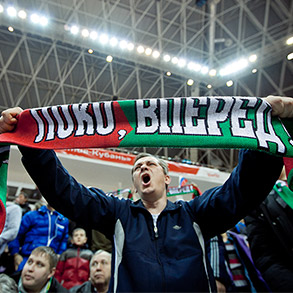

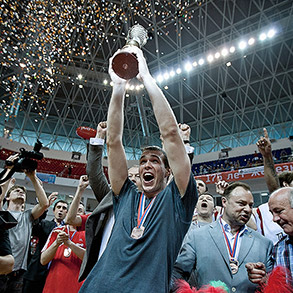
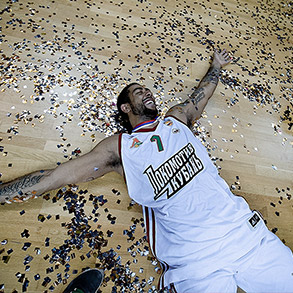
2012/2013
Lokomotiv Kuban achieved the biggest success in its history on the domestic arena — the team reached the Russian championship final for the first time and won silver medals.
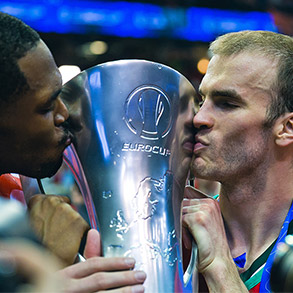
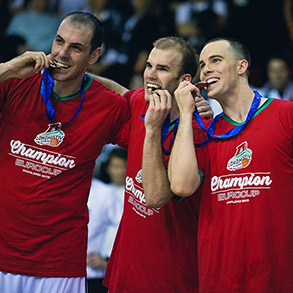
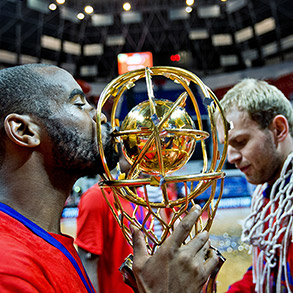
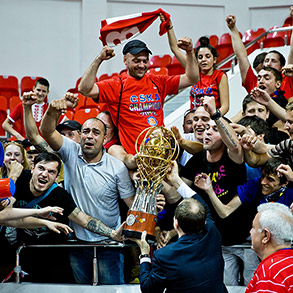
2013/2014
Along with the Euroleague the club played in two other tournaments — VTB United League and Russian cup having reached the final of the latter. Silver medals were the outcome of the tournament.
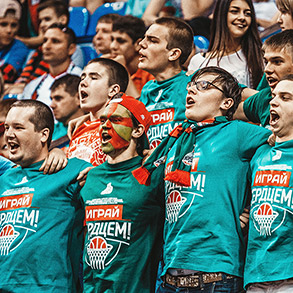
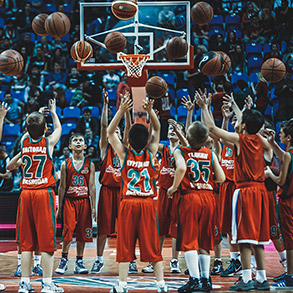
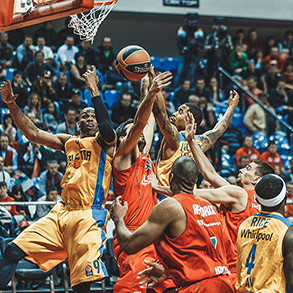
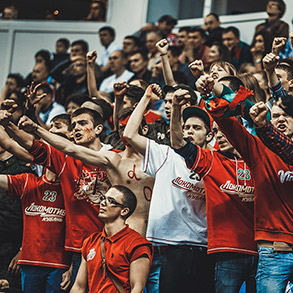
2014/2015
A record of 19 wins in a row in Eurocup made them a major title contender but injuries forced Lokomotiv Kuban to finish their way in the quarter-finals.
Other than that the club won bronze medals in the VTB United League.
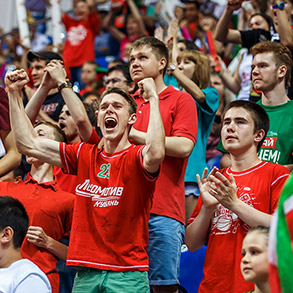
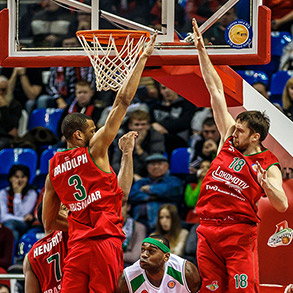
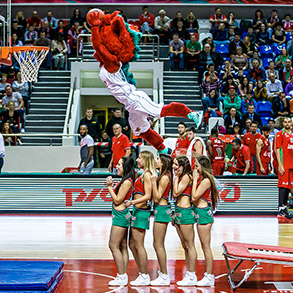
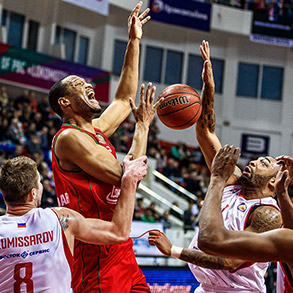
2015/2016
For the first time in history a club that had gotten a wild card to play in Euroleague reached the Final Four. During the season Loko beat Panathinaikos three times, Anadolu Efes suffered twice and then there was a fantastic 5 gams series against Barcelona — Loko won the deciding fifth game at home and celebrated getting through to the Final Four with a full arena on the court.
As a result not only Loko won a place on the Berlin pedestal, but also made a huge contribution to the future — Andrei Vedischev, the president of the club, announced launching of the first basketball center for children in Russia, that is aimed on developing kids from the region.
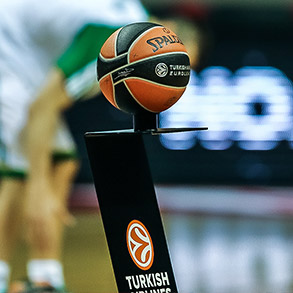
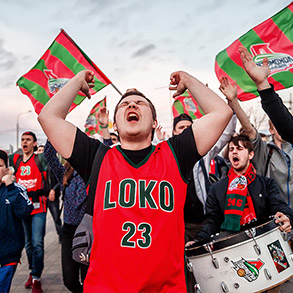
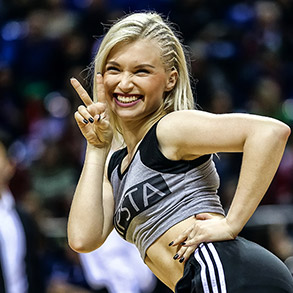
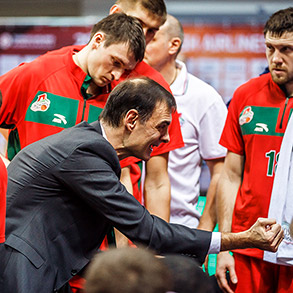
2016/2017
Throughout the years Lokomotiv Kuban walked a colossal road from a basketball workshop for railmen to the Final Four of the most prestigious European tournament — Euroleague.
Much to the disappointment, Loko didn’t get any trophies in the jubilee year. At the start of this season Fotis Katsikaris took the team under his wing but due to the poor results in all the tournaments it was decided to part ways with the Greek coach. Sasa Obradovic came as a substitute. With the Serbian specialist in charge Loko managed to reach Eurocup semi-finals where they lost to the future champions — Unicaja.
A similar story happened in the VTB United League. Loko beat UNICS in the quarter-finals but lost the semis to CSKA.
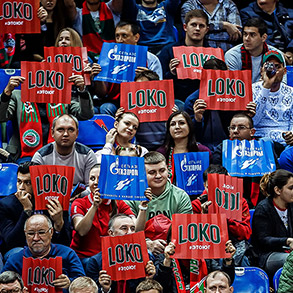
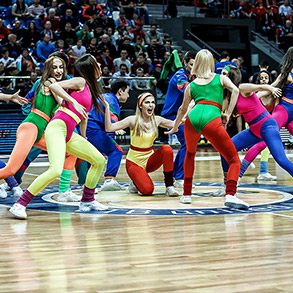
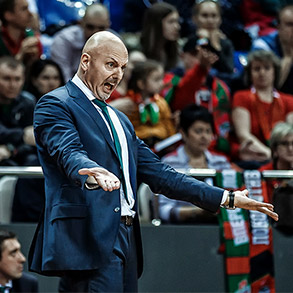
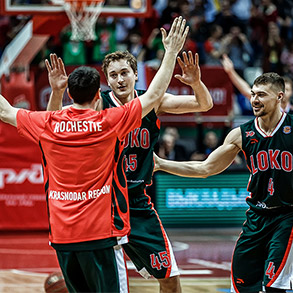
2017/2018
The roster was formed by the head coach Sasa Obradovic. Loko signed up three national team players (Dmitry Kulagin, Pavel Antipov and Stanislav Ilnitsky), Russian cup winner Ivan Nelyubov, American players Joe Ragland, Chris Babb, Trevor Lacey and Brian Qvale and one of the most entertaining players in the VTB United League Frank Elegar.
Loko set an all-time Eurocup record of 20 victories in a row, winning all the games up until the final. Unfortunately, the team lost the first game in Basket Hall and could not turn the game around in Istanbul.
The VTB United league regular season was finished with Loko being third in the table. But the club couldn’t expand the success onto the playoffs. With 3-0 in the series Khimki advanced to the next round.
Nonetheless, Look won a trophy that season. In the Russian cup final against Nizhny Novgorod Loko won with a huge gap — 85:64 — with an Russians-only roster throughout the whole tournament.
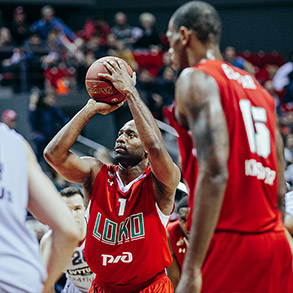
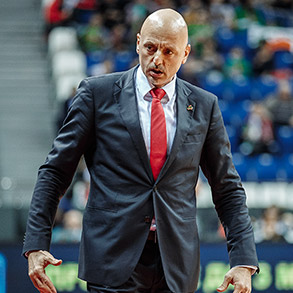
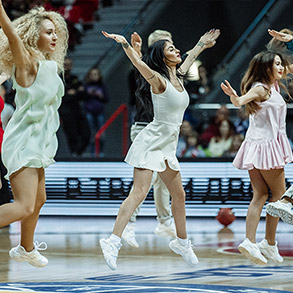
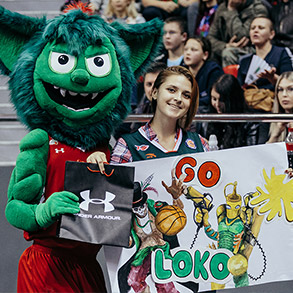
2018/2019
Teams’s roster was reinforced by an NBA champion Dorell Wright, a reigning Eurocup champion JaJuan Johnson, an American prospect Isaiah Whitehead and other foreign players.
Despite Moustapha Fall and Jamel McLean’s injuries Loko finished the group stage in the first place and TOP-16 of Eurocup. The quarter-finals against UNICS were as tight as it might be, but Loko were unlucky by having lost the third game on the road.
In the VTB United League Loko finished on the fourth place after a powerful ending of the regular season. But in the quarter-finals against Zenit, Bob Donewald’s team was let down by injuries (before the fourth game Dorell Wright had to recover along with Dmitry Khvostov) and the series finished with a 3:1 score and the St. Petersburg club advancing further.
Lokomotiv Kuban has one of the highest attendance in Russia. The club is a multilevel sports organisation developing both professional and amateur sports. In the Loko system there are seven youth teams players from which are called up to the national teams of different ages on a regular basis. Lokomotiv Kuban hosts an all-Russian children’s tournament “Lokobasket - School league” that unites more than 200 000 contenders from all over the country. In 2016 the club initiated a unique basketball center aimed to lead young Russian player on a new level. More than that, in 2018, we began construction of a club’s new training center. The first part of the work is to be finished by the end of 2019.
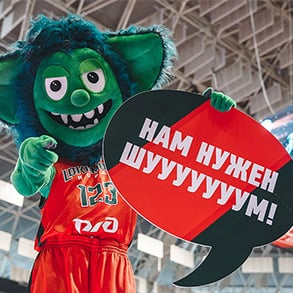
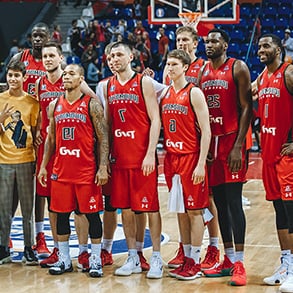
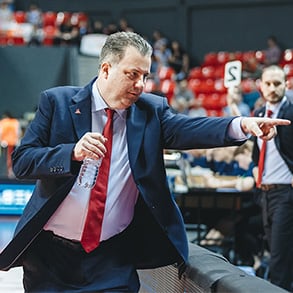
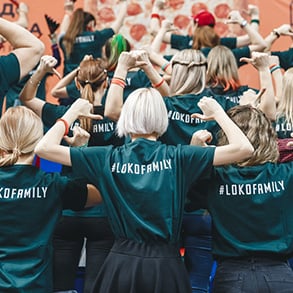
2019/2020
In the offseason the team underwent changes in management, coaching staff, and the roster was renewed.
Ginas Rutkauskas was appointed vice president. For the Lithuanian specialist this is a return to the Krasnodar: he was Loko's vice president from 2012 to 2014.
Italian specialist Luca Banchi became the head coach of the team.
The roster was joined by American legionnaires Sam Decker, Will Cummings, Johnny O'Bryant and Alan Williams, as well as Lithuanian defender Mantas Kalnietis, who played for Loko in the seasons 2012/2013, 2013/2014, 2014/2015.
On November 15, after unsatisfactory results at the start of the season, the club's management decided to part ways with Luca Banchi. Bogdan Karaicic was appointed as acting coach.
On December 7 after a home defeat to Avtodor Saratov Evgeny Pashutin, who coached Loko from 2012 to 2014, was appointed as head coach. After Pashutin's return Loko beat Partizan in the Eurocup, but lost to Tofas away and for the first time did not qualify to top-16 of Eurocup.
In VTB United League Loko with Pashutin made a spurt of eight victories in a row. In March the season was suspended due to the coronavirus pandemic. Loko was in third place after Khimki and CSKA.
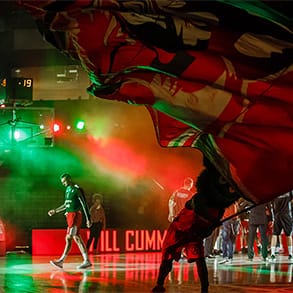
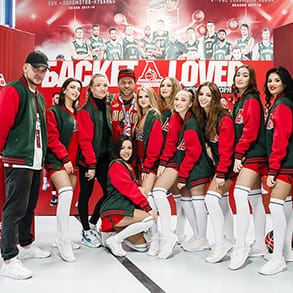
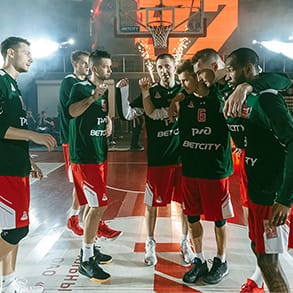
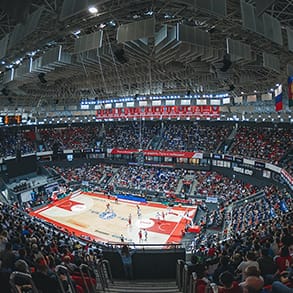
2021/2022
The team has undergone major changes in the offseason. A wide roster of foreigners - Nigel Williams, Will Cummings, Kevin Hervey, Mantas Kalnietis, Mindaugus Kuzminskas, Drew Gordon and Reggie Lynch - were substituted by a pinpoint reinforcement of a number of American players.
Andrey Martyuk, Zakhar Vedischev, Alexander Shcherbenev, Vladislav Yemchenko, Valery Kalinov and Yegor Sychkov the pupils of the Lokomotiv-Kuban reserve system, got much more trust and with it – responsibility in current season.
Evgeny Pashutin left the club and his assistant Serbian specialist Branko Maksimovic took the position as an acting coach. Guard Jaylen Barford joined the team and immediately became one of the main offensive options. But Maksimovich did not manage to make his plans for Eurocup. Russian teams were excluded from Euroleague and Eurocup in February. Foreigners parted ways with the club by mutual agreement.
Afterwards Loko put up an impressive 10-1 streak in VTB League. The team successfully completed the regular season and knocked out PARMA-PARIBET (3:0) in the first round of the playoffs. Loko approached the semi-finals with CSKA in great mood. Loko imposed serious fight to the longtime leader of the Russian basketball.
Loko lost in the series with the score1:3, but had a chance to achieve more and basketball experts gave positive feedback on the performance. But Loko roster, noticeably rejuvenated with the departure of foreigners, had no energy left for the struggle bronze series. The team gave Kazan a real fight, won one of the away games, but eventually lost the series with the score 1:3 and took fourth place in the VTB United League championship.




2022/2023
September of 2022 was marked for the Lokomotiv-Kuban club system with launching of the Youth Training Center, which became the base for all reserve teams. Before the start of the season, a new coaching staff was invited to the Loko main team: Slovenian coach Alexander Sekulic (at the same time the head coach his country’s national team) and his Croatian assistant Jurica Zuza. The list of players was supplemented by forwards Darral Willis and Dmitry Uzinsky. And if the first one didn’t stay in the team for long, the second one confidently fit into the game and was soon awarded the captain’s armband.
At first, Loko did not demonstrate a stable and bright game. Nevertheless, after start of the second stage of the championship it turned out that the Krasnodar team won 12 out of 12 matches against the teams that eventually went to finish the tournament in the “bottom” six. And Lokomotiv-Kuban having added experienced foreign players Chris Horton, DeVaughn Akoon-Purcell and Okaro White, began to gain confidence.
And, although the team qualified for the playoffs only in 5th place, the quarter-final opponent, Pari Nizhny Novgorod, was beaten 3:0. Loko created a much louder sensation in the semi-finals, knocking CSKA out of the fight for gold, a team that had previously missed the finals for the last time in the 2001/02 season! The fate of this incredibly dramatic series was decided in overtime of the 7th match, where Krasnodar basketball graduate Alexander Shcherbenev showed off his composure and accuracy.
The final series began very optimistically for Loko: in the first match UNICS was beaten in Kazan with a solid margin of safety. However, then the Kazan team won four matches in a row. Lokomotiv-Kuban won silver medals in the VTB United League for the second time in its history. Loko-2 achieved brilliant success, becoming the champion of the VTB United Youth League. Loko-2008 also won gold medals at the All-Russian Championship. And Alexander Shcherbenev, Vladislav Yemchenko, Andrey Martyuk and Anton Kvitkovskikh, who play for the main team, have secured their status as the main players of the Russian national team.




2023/2024
After the silver medals of the previous season, the club's management decided to preserve the whole roster. There were also a couple additions: Belarusian point guard Vladislav Bliznyuk and Slovenian-American center Jordan Morgan arrived.
Lokomotiv-Kuban started the 2023/24 season vigorously: in the VTB United League Supercup, they first beat CSKA in overtime, then Fenerbahce. And only in the final did the red-greens lose – to Zenit.
In the VTB United League championship, the team at first mixed big victories with big losses. A good example is the defeat in Kazakhstan, followed by victory over CASK 3 days later. By late autumn, Loko took a good pace. DeVaughn Akoon-Purcell received the MVP of November, and in December Andrei Martyuk shared the same title with Anton Astapkovich.
In January, Aleksander Shcherbenev was recognized as the "Athlete of Kuban-2023", and Kirill Yelatontsev was named the best young player of the VTB United League in April.
Akoon-Purcell and Martyuk were invited to the All-Star Game; the American forward scored 44 points and was awarded the title of the MVP title.
Loko finished the first stage of the regular championship in third place (19 wins, 7 losses). After 10 games of the second stage, the red-greens let Zenit pass ahead. In February-April, the team was replenished with three legionnaires: Maurice Ndour, Patrick Miller and Karvel Anderson. Bliznyuk was sent on loan to Nizhny Novgorod, the contract with Morgan was terminated.
In the quarterfinals, PARMA was swept 3-0. In the semifinals with UNICS, the series stretched to all 7 games, where the score was tied a minute before the end of the 7th game, but everything turned out, alas, not in our favor. In the bronze series, we lost to Zenit 1-3. At least, Anderson set a VTB United League record for the most number of three-pointers scored in one season – 159.
As for other important events of the Lokomotiv-Kuban Association, Loko-2 took bronze in the VTB United Youth League, Loko-2010 became the silver medalist of the Russian Championship, and our Academy hosted the Superfinal of the XVII Lokobasket – School League.




2024/2025
A month before the start of the 2024/25 season, the board of Lokomotiv Kuban PBC announced sensational news: long-term club president Andrei Vladimirovich Vedishchev was appointed head coach of the main team.
New players also appeared: forwards B.J. Johnson and Isaiah Whaley, guard Antonius Cleveland. The effect was immediate: Johnson was included in the Team of the Supercup, and Cleveland, with a buzzer from the logo, brought Lokomotiv a victory in overtime of the Supercup game for 5th place against Beşiktaş.
With the start of the VTB United League, Loko began to rewrite the club's record book: 9 wins in a row at the start , 127 points scored against Astana, 117 points in the away game against Zenit.
However, the team began to be plagued by injuries: Johnson and Karvel Anderson were out for a very long time, and the team had to urgently look for replacements. This is how Aleksandr Gudumak, Tahjere McCall and John Jenkins joined. Gudumak arrived as an All-Star – he was selected by fans to participate in the All-Star Game 2025. Patrick Miller, Kirill Yelatontsev were also invited – as well as Andrey Vedishchev who became the head coach of the Russian players' team and defeated the team of legionnaires with a score of 124:107.
Loko finished the regular season with a positive balance of wins and losses against other Top-4 clubs (7-5). However, several unnecessary losses to clubs from the lower part of the table led to an intermediate 4th place. Yelatontsev was named the best young player in the league for the second year in a row, Cleveland was awarded the DPOY title, Miller was included in the symbolic team of the week 8 times – more often than anyone else in the league.
In the 1/4 finals, Loko won the series against Uralmash with a score of 3-1. The opponent in the semifinals was the winner of the regular season, Zenit, which by that time had won 23 victories in a row. The series turned out to be incredibly intense: in game #4, Miller set a league record, scoring 14 points in overtime, in game #6, Loko recouped 4 points in the last minute, but in the seventh game, Zenit still won. The bronze medal series against UNICS had a fantastic culmination: at the end of the 4th quarter of game #4, Cleveland scored two long-range three-pointers in a row within 8 seconds, sending the game into overtime. Alas, in the second additional five minutes, the opponent turned out to be stronger, winning the series 1-3.
Anyway, the club system still earned gold medals – Loko-2010 won the U16 Russian Championship. Also, our reserve team, ORSS-Lokomotiv-Kuban, won their first trophy ever – the Kupol Cup.



